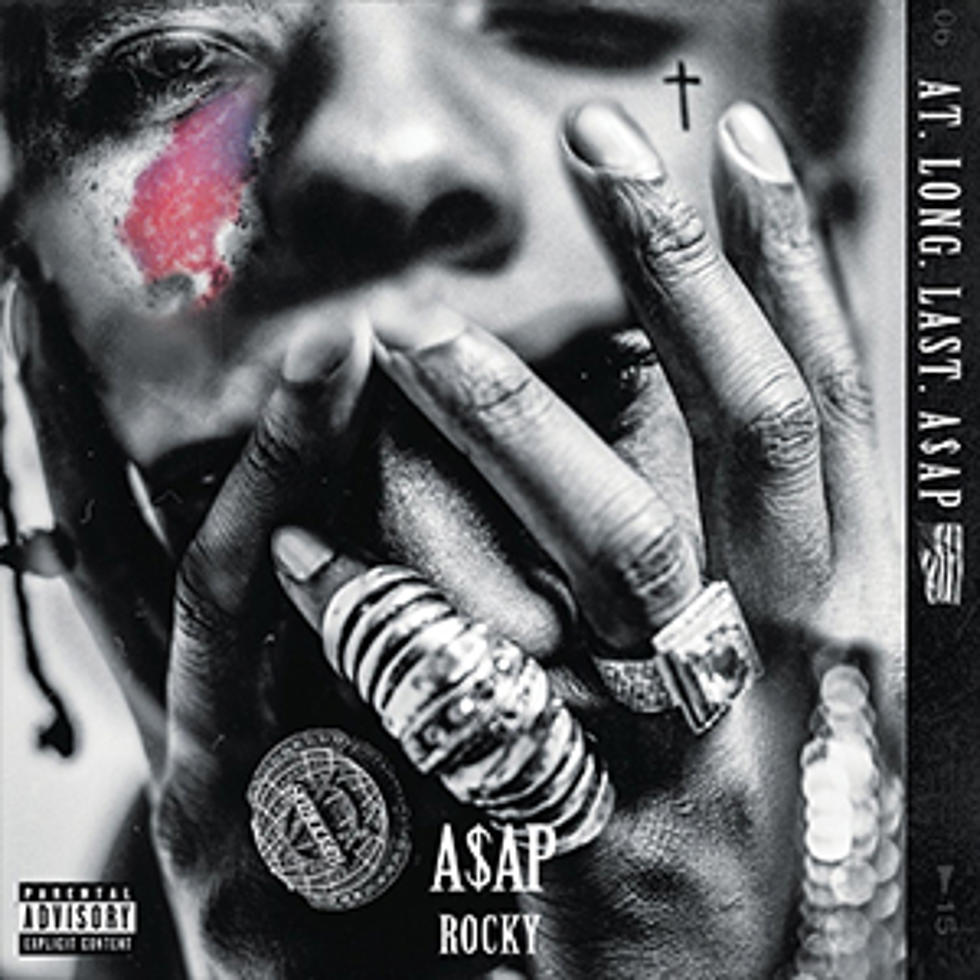
Album Review: A$AP Rocky, ‘A.L.L.A.’
Style matters, and the rapper A$AP Rocky showed off plenty of it on his official debut, Long.Live.A$AP. Context is also important, and this rapper played a crucial role in opening New York hip-hop to new influences, helping to knock that venerated sub-genre out of a deeply self-referential rut.
But songs matter just as much -- maybe more -- and Long.Live.A$AP didn’t have enough good ones. The MC overused his favorite vocal manipulation -- a slowed down, artificially deepened tone that nods to Texas hip-hop -- and often rapped predictably. On “F---in’ Problems,” the album’s one truly explosive song and its biggest hit, you quickly forget Rocky’s presence: 2 Chainz’s hook is blunter, Drake’s verse nimbler and Kendrick Lamar’s contribution is characteristically stunning. To Rocky’s credit, he collaborated with Skrillex before rap-EDM mixing was a thing, but the result wasn’t compelling, especially when stacked up against other hybrids, like the viral hit “Turn Down For What.”
Two things changed for Rocky before the sudden release of his sophomore album, At.Long.Last.A$AP, this week. First, the MC’s friend A$AP Yams, an instrumental mentor on Rocky’s quick rise to stardom, died of a drug overdose. Yams’ legacy of sonic open-mindedness is everywhere on A.L.L.A., which brings us to the second change in Rocky’s life, one related to taste: The MC has been telling anyone who asks that he’s now obsessed with old rock, and into LSD, the drug of old rockers. He praised T. Rex, the Kinks and the Stooges in a Billboard interview, released a single, “Everyday,” that drew on an early ‘70s Rod Stewart song, and recently claimed he had three drug-fueled orgies at SXSW.
It turns out the ‘60s influences on A.L.L.A are overstated. There’s one exception, “L$D,” which finds Rocky singing in a drugged-out croon over plangent guitars and high backing vocals. When he’s 40, he should record an entire album of these songs to escape aging-rapper syndrome. For now, he should leave them alone. Some of A.L.L.A. is built to sound as if it were sampled from old records, but that’s not such a novel approach: NYC rap was built on a sturdy foundation of obscure samples from all sources.
What’s important isn’t Rocky’s love of T. Rex, it’s that he doesn’t sound much like anybody else. (Well, maybe he does in one regard: like recent albums from Drake and Kendrick Lamar, this one could use an editor.) Rocky doesn’t fit with the DJ Mustard-dominated West Coast rap scene, and he’s definitely not a disciple of the Atlanta or Toronto schools either. Singularity was his strength the first time around -- remember, he collaborated with Skrillex before it was cool -- and he’s refined it. There are more guests, but the sound is more focused, consistently tough and pretty. Big name producers like Mark Ronson and Kanye West pop up on a few songs; these guys are mostly window-dressing. This is Rocky's album.
With A.L.L.A., he now has a slew of songs that match his distinctive style. Take “Canal St.,” which appears early on the album and shows a masterful approach to minimalism: the melody is barely a couple notes; the drums drop out for long portions of the song; every element is visceral and carefully considered. “Changed the game and made ‘em say ‘oh,’” Rocky raps, but the “oh” arrives pitch-shifted, cleverly reminding listeners of his favorite studio effect instead of bludgeoning them over the head with it like he used to. There’s also a good, old-fashioned burst of hubris to help assert his own place in New York rap’s legacy: “F--- Biggie, I’m gorgeous / Your favorite rapper’s bodies couldn’t measure my importance.”
“Lord Pretty Flacko Jodye 2” is the sonic embodiment of those rapping bodies: the synth line that drives this song slices through the air with the menace of a horror movie soundtrack. Rocky circles this riff warily, like a boxer waiting for his opponent to drop his guard. Again, the percussion is artful: at the moment, rap is dominated by the quick flurries of hi-hats that trickled down from southern hip-hop, but the drums here hold back, picking their moments and building suspense.
The most daring track on A.L.L.A. is “Excuse Me.” Rocky tries to persuade you that it’s business as usual here -- “Flacko, where you been? I've been thuggin.'” Don’t be fooled. There’s a repeating, shimmery string sample that keeps building, as if the song is about to explode into post-Hudson-Mohawke soul rap, but it doesn’t. Instead, Rocky puts together a pop-rap ballad. “Ain’t got time to make excuses bro,” he sings convincingly on the chorus. “We steady makin’ moves.”
This time, though, no excuses are necessary.
More From Diffuser.fm









